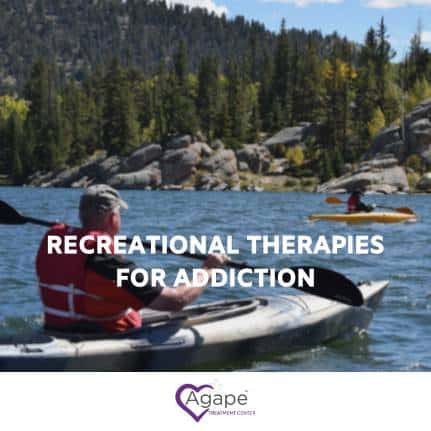
Anyone who suffers from addiction or mental illness can benefit from this form of care. However, it is most effective when combined with a comprehensive treatment program centered around evidence-based techniques. Recreational therapies are also used to help treat eating disorders, anger problems, grief, trauma, and behavioral issues. Ultimately, the goal of this type of treatment is to bring underlying emotions to the surface, allowing people to heal while learning how to overcome challenges.
Table of Contents
ToggleWhat is Recreational Therapy?
The earliest forms of recreational therapies date back to the early 1900s but didn’t gain much traction until the last 30 years. When the American Therapeutic Recreation Association (ATRA) was formed in 1984, it set the standards for this form of therapy. As a result, it became a more popular form of treatment for many conditions. According to ATRA, the guiding principles they stand behind are:[1]
- Recreational Therapy is a process provided in diverse settings.
- Assessment, planning, intervention, evaluation, and documentation (APIED) are the foundation of Recreational Therapy
- Evidence-based practice, professional credentialing, and accreditation.
- Building powerful relationships.
- Mentoring and developing professionals.
Also known as therapeutic recreation, this form of therapy uses recreation and activity-based interventions that address the needs of individuals. Furthermore, treatment plans are highly individualized as they are tailored to meet each patient’s lifestyle, beliefs, and rehabilitation needs. It is designed to rehabilitate and restore a person’s independence, functioning, health, and thought processes.[2]
By enhancing a person’s sense of independence and healthy living, recreational therapies benefit all aspects of a person’s life. As a result, this therapy helps reduce or even eliminate some of the symptoms or side effects associated with mental or behavioral health conditions.
How Recreational Therapy is Used to Treat Addiction
Recreational therapy uses a variety of different activities to address the emotions and symptoms that may hinder a person’s recovery. For example, many people who suffer from drug or alcohol addiction also experience depression, anxiety, or trauma. If left untreated, all of these conditions can make recovery and long-term sobriety difficult. However, recreational therapy treats addiction by addressing these issues and providing an array of benefits, including:
- Challenging patients to push themselves and overcome difficulties, therefore, building a sense of accomplishment surrounding mental and physical challenges.
- Learning to trust others by participating in team-building and trust-building activities.
- Developing leadership, team-building skills, and support systems.
- Building confidence, resilience, and self-esteem.
- Encouraging patients to face their fears, heal emotionally, and walk through challenges without using substances.
- Helping patients build self-awareness and problem-solving skills.
- Motivating patients to live healthier, more independent, and fulfilling lives.
- Reducing a person’s sense of isolation, anxiety, depression, and stress.
- Introducing patients to new, sober hobbies and activities that they can use to fill their spare time and/or cope with future challenges.
- Encouraging patients to take care of their physical and mental health.
- Improving motor functioning and cognitive abilities.
- Preventing relapse by developing skills to cope with challenges in recovery.
- Providing patients with a break from behavioral therapy and an outlet to cope with stress and/or have fun.
When used to treat drug and alcohol addiction, recreational therapy exposes patients to new activities and provides a break from the intensive work done in behavioral therapy. In many cases, people don’t even realize that they are getting therapy. Instead, it just feels like fun activities. In reality, people in recovery are used to spending their time using drugs and alcohol as a coping mechanism. That’s why it’s so important to find new activities in recovery. By taking advantage of recreational therapies in rehab, the patients have access to whole-body healing.
The Different Types of Recreational Therapy for Addiction
Before starting treatment, therapists will build a treatment plan that meets each persons individual needs. As a result, no two people will have the exact same treatment plan, so some people will participate in different activities than others.
Recreational therapy for drug and alcohol addiction consists of many different activities. These include, but are not limited to:
- Interaction with animals (ex. Equine therapy, volunteering at an animal shelter)
- Arts and crafts
- Outdoor activities (hiking, rock climbing, fishing)
- Music therapy
- Meditation
- Community outings and events
- Sports
- Games
- Team building exercises
- Yoga
- Creative writing (poetry, journaling)
- Dance, movement, or drama therapy
Although these activities are all beneficial during treatment, they can also be used after rehab to help sustain sobriety.
Learning to Live Sober
At Agape Treatment Center, we know that recovery involves more than counseling. Oftentimes, it involves simply learning how to live and cope on a day to day basis. That’s why we teach our patients how to live a happy and successful sober life.
From the moment you arrive and begin experiencing withdrawal symptoms to the day you are discharged, our team of addiction and mental health specialists are here to help you discover fulfilling activities that help you stay sober. Call us today for more information about our addiction and mental health treatment programs.
References:






